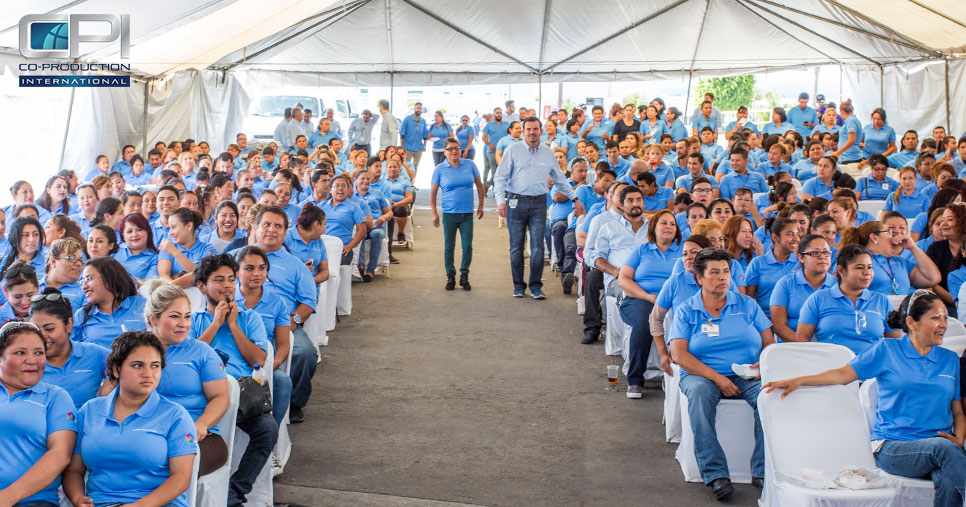Tijuana, Baja California, October 2nd, 2023 - In a historic development, Mexico is on the cusp of implementing a transformative labor reform that will revolutionize the nation's work landscape and significantly enhance the well-being of its workforce.
This groundbreaking initiative aims to reduce the standard workweek from 48 hours to 40 hours, aligning Mexico's labor practices with modern standards and international agreements, including the United States-Mexico-Canada Agreement (USMCA).
The Initiative's Origin
This transformative journey began with an initiative presented by Diputada Carolina Dávila Ramírez of the PRI party on April 23, 2022. Her proposal sought to modify Article 123 of the Constitution and the Federal Labor Law, advocating for a reduction in the standard workweek to 36 hours. Diputada Ramírez's argument highlighted the disparity between Mexico and European countries, where workers averaged 2,137 hours annually, a staggering 757 hours more than their Danish counterparts who worked only 1,380 hours per year.
Legislative Progress
The initiative underwent rigorous examination, leading to its placement in the hands of the Commission on Constitutional Points of the Chamber of Diputados for study and an Official Opinion. On April 23, 2023, a pivotal moment occurred when the Commission approved a resolution concerning labor work shifts and mandatory days of rest for Mexican workers. This resolution not only adheres to modern labor standards but also aligns with international agreements, such as the USMCA.
The resolution, with far-reaching implications, aims to reform Article 123, mandating two days of mandatory rest and a maximum workweek of 40 hours. Any work exceeding 48 hours would necessitate overtime pay, ensuring fair compensation for workers. Importantly, the resolution assures that this reduction to 40 hours will not result in reduced pay compared to a 48-hour workweek.
The Road Ahead
The next phase in this labor reform journey involves a vote in the Senate, set to convene from September 1 to December 15. During this period, the initiative will be put to a vote, marking a significant step toward transforming Mexico's labor practices and reinforcing its commitment to international agreements.
Proposed Changes to the Constitution and Federal Labor Law
The proposed reform seeks to amend Article 123 A of the Constitution, aiming to ensure that workers enjoy two days of rest for every five days of labor, aligning with international labor standards.
Furthermore, the Federal Labor Law, based on Article 123 A, will be adjusted to specify that the maximum duration of a work shift is eight hours for the day shift, seven for the night shift, and seven and a half for the mixed shift. These changes bring Mexico's labor laws closer to international standards and address the demands of a modern workforce, enhancing its compliance with international agreements like the USMCA.
Alignment with International Standards
The reduction of the workweek is a vital step towards aligning Mexican labor laws with the Organization for Economic Co-operation and Development (OECD) guidelines. Mexico has already implemented several changes in labor law, such as prohibiting the employment of minors under 15 years of age and raising the minimum wage, bringing it closer to international standards and bolstering its position within international agreements like the USMCA.
The Pending Labor Law Reform
Despite the passing of key dates, such as the approval by the Commission of Constitutional Points in April 2023, the labor law reform has yet to be officially approved. Legislators temporarily set the initiative aside due to the end of the session, with the expectation that it will be revisited once a new session of ordinary sessions commences.
As a constitutional reform, it requires consensus and support from the qualified majority of the Chamber of Diputados and Senators. Following that, there will be discussions, potential modifications, voting, and final approval. If both chambers approve it without amendments, the reform will be sent to the Executive Branch for publication in the Official Gazette of the Federation.
The Path Forward
With widespread political support from various parties, the reform to reduce the workweek in Mexico appears to be on track for approval. If passed, it is anticipated that this transformative change will take effect on January 1, 2024, marking a significant milestone in Mexico's labor history and further solidifying its commitment to compliance with modern labor standards and international agreements, including the USMCA.
As Mexico continues its journey towards more equitable and modern labor practices, this initiative represents a significant stride towards a brighter future for its workforce and the nation as a whole, in line with its obligations under international agreements like the USMCA.
Roman Caso, CEO Co-Production International





.png)






